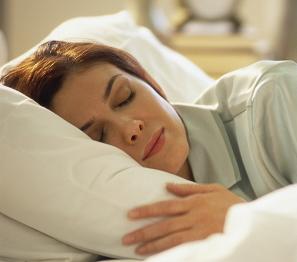
More evidence that low-calorie sweeteners are bad for your health
Studies show that artificial sweeteners can raise the risk of hypertension, metabolic syndrome, type 2 diabetes and heart disease, including stroke.

Natural Health News — Sleeping well is a crucial factor contributing to our physical and mental restoration.
If you feel sick or have had a hard working day, you often simply want to get some good, deep sleep – something that can be difficult to achieve through sheer force of will alone.
Enter the concept of hypnosis – a method that can influence processes which are otherwise very difficult to control voluntarily.
In a study, published in the scientific journal Sleep, researchers from the Universities of Zurich and Fribourg have shown that hypnosis has a significant positive impact on the quality of sleep.
“It opens up new, promising opportunities for improving the quality of sleep without drugs,” says co-author and biopsychologist Björn Rasch from the Psychological Institute of the University of Zurich.
Slow wave sleep
Some types of sleep are more restorative than others. Deep sleep, or slow wave sleep (SWS) in particular has been shown to have a positive impact on things like memory and the functioning of the immune system.
During periods of SWS, growth hormones are secreted, cell repair is promoted and the defence system is stimulated. The characteristic feature of slow-wave sleep, which is deemed to have high restorative capacity, is a very even and slow oscillation in electrical brain activity.
Brain waves - an indicator of sleep quality
Patients with sleep disturbances can indeed be successfully treated with hypnotherapy. However, up to now it hadn’t been proven that this can lead to an objectively measurable change in sleep. To objectively measure sleep, electrical brain activity is recorded using an electroencephalogram (EEG).
For this study, 70 healthy young women attended a sleep laboratory for a 90-minute midday nap. Before falling asleep they listened to a special 13-minute slow-wave sleep hypnosis tape over loudspeakers, or to a neutral spoken text. The hypnosis tape was developed by co-author and hypnotherapist Professor Angelika Schlarb, a sleep specialist.
At the beginning of the experiment the subjects were divided into highly suggestible and low suggestible groups using a standard procedure. Around half of the population is moderately suggestible.
Deep sleep increased by 80%
Results showed that highly suggestible women experienced 80% more slow-wave sleep after listening to the hypnosis tape compared with sleep after listening to the neutral text. At the same time, time spent awake was reduced by around one-third.
In contrast to highly suggestible women, low suggestible participants did not benefit as much from hypnosis.
According to co-author and psychologist Maren Cordi: “The results may be of major importance for patients with sleep problems and for older adults. In contrast to many sleep-inducing drugs, hypnosis has no adverse side effects. Basically, everyone who responds to hypnosis could benefit from improved sleep through hypnosis.”

Please subscribe me to your newsletter mailing list. I have read the
privacy statement